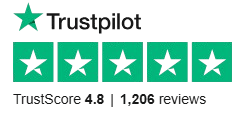
Differences Between Secured And Unsecured Loans
Deciphering Secured vs. Unsecured Business Loans: What UK SMEs Need to Know Navigating the business loans market in the UK can often feel like solving…
We have partnered with Funding Options so you can compare over 120 lenders to find the right finance partner for you.

Some of the lenders compared….
At Simply Business Loans we have partnered with Funding Options to bring you access to over 120+ lenders. Funding Options provides you with one simple application process that delivers uniquely tailored loan solutions for your business. Their technology, Funding Cloud, will accurately validate your business profile, matching you to the industry’s largest lender network.
Start with how much you need to borrow, what it’s for, and basic information about your business.
Smart technology at Funding Options will compare up to 120+ lenders and match you with matched finance options
Help is provided to you during application process to receiving your funds. It’s free to apply and it doesn’t affect your credit score
Secured loans can be a valuable financing option for UK small businesses and SMEs seeking more substantial funding. Here’s some pointers to understanding secured loans, their key features, and which businesses they best suit.
Key Features
Secured Against Assets:
Loans are secured against business or personal assets, like property, inventory, or equipment. This provides a safety net for the lender, often resulting in lower interest rates and higher borrowing limits.
Flexible Loan Amounts:
Loan amounts typically range from £10,000 to £5 million, depending on the value of the collateral. This gives businesses access to significant funding for various purposes.
Longer Repayment Terms:
Repayment periods range from 1 to 25 years. This helps manage cash flow with more affordable monthly repayments.
Lower Interest Rates:
Secured loans generally have more competitive interest rates than unsecured loans due to reduced lender risk. This reduces the total cost of borrowing over the loan term.
Risk of Asset Repossession:
If the business defaults on the loan, the lender can repossess the pledged assets. It’s crucial to carefully assess repayment capability before opting for a secured loan.
Best-Suited Businesses
Growing Businesses:
Ideal for companies expanding their operations or acquiring new equipment, as higher borrowing limits enable significant investments.
Businesses with Valuable Assets:
Suitable for businesses with assets like property, vehicles, or machinery to use as collateral to secure the loan and potentially get more favourable rates.
Businesses Refinancing Existing Debt:
Useful for companies consolidating or refinancing high-interest debt, as lower interest rates can help reduce overall debt costs.
Seasonal Businesses:
Ideal for businesses experiencing seasonal fluctuations in revenue, as longer repayment terms help manage cash flow during off-peak periods.
Comparing Secured Loans
Define Your Funding Needs:
Determine the amount required and repayment terms suitable for your business.
Compare Interest Rates and Fees:
Review the Annual Percentage Rate (APR) and any hidden fees like arrangement or early repayment fees.
Check Eligibility Requirements:
Lenders have varying criteria for business size, credit score, and collateral value.
Consider Other Loan Types:
Compare secured loans with alternatives like unsecured loans or asset finance.
Seek Professional Advice:
Consult financial advisors or business mentors to identify the best funding solution.
Unlock Your Best Assets
Secured loans can provide small businesses and SMEs with more substantial funding at lower interest rates. Comparing different secured loan options can help save money and helps you ensure you choose the best solution for your business needs.

Deciphering Secured vs. Unsecured Business Loans: What UK SMEs Need to Know Navigating the business loans market in the UK can often feel like solving…

Navigating the Landscape of UK Business Loans: What You Need to Know As the backbone of the British economy, small to medium-sized enterprises (SMEs) are…

The Key Takeaways The 2024 UK budget was announced on October 30th 2024. It is the first budget of the Labour government in 14 years.…
About This Information
Our articles, guides & reviews are provided as generic information only. Any expressed view, product or service mentioned within these does not constitute as financial advice or recommendation by us.
Be mindful that information may have changed since publication.